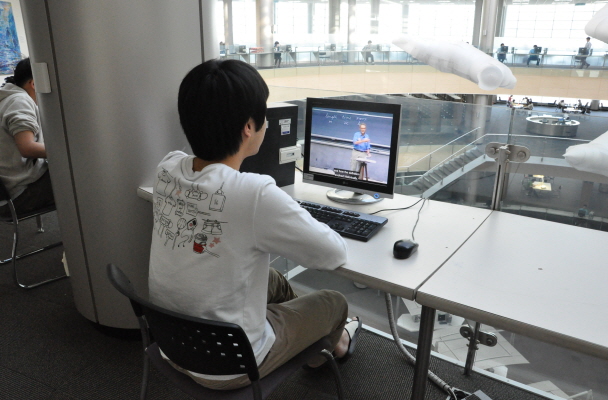
The idea of OCW was first introduced when MIT faculty were discussing how to graft the Internet to learning in the spirit of MIT’s mission “to advance knowledge and educate students.” OCW has often been spearheaded by the faculty themselves under a common commitment to knowledge as a public good. With such a noble cause, many universities are participating in this project by compiling their own course materials for both undergraduate and graduate courses. By 2007, MIT has completely published all of its courses, an astounding total of 1800. In addition to its variety, OCW is becoming increasingly popular because it requires no enrollment to school, registration, or payment for use.
The true value of OCW is that it benefits whomever has a desire to learn. For enrolled college students, they could seek alternative explanations for difficult concepts, or sources for casual learning. For those who are not fortunate enough to study in a university, they could learn the wanted materials from respectable sources at no cost. Though they provide such a generous opportunity to learn, the schools don’t grant degrees or certificates for completing OCW, but only the knowledge.
The contents of OCW include syllabi, lecture notes, lecture videos, supplementary multimedia resources, assignments, and exams to generate a real learning environment even at a distant location other than the campus. At some schools, a free content downloading option and translated lectures are available.
In addition, universities collaborate with each other through the Open Course Ware Consortium. One single institution can’t be the best in every field; the schools agree to supply courses to reinforce what each school lacks. In other words, the courses are offered by the schools with high reputations in each field.
However, nothing is free in this world. The publication of high quality resource itself is very expensive, and sustaining the service is just as pricey. According to MIT, the total annual cost of their OCW is about $3.5 million. The cost covers collecting materials from faculty, dealing with copyright and licensing issues, compiling them in a suitable format for distribution, maintaining multimedia sources, and managing the technical infrastructure to provide contents across the globe. They even provide and support local mirror sites in bandwidth constrained regions.
Institutions that offer OCW solicit donations to keep providing these features for free. Even though the programs in each school are funded by various sponsors such as the William and Flora Hewlett Foundation, the Andrew W. Mellon Foundation, and the universities themselves, they also receive support from numerous individual contributors who make small and large donations.
It would be a good idea for POSTECH, with its highly praised academic reputation, to join the vanguard in this worldwide trend as a part of its approach to globalization.


